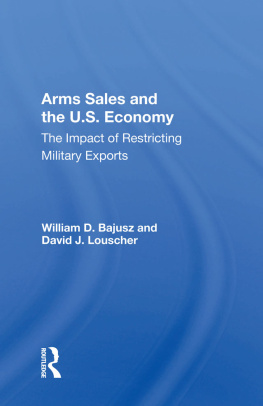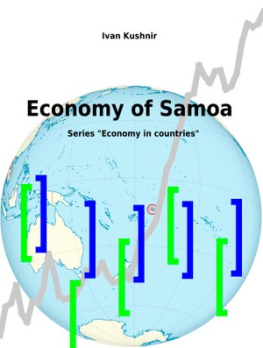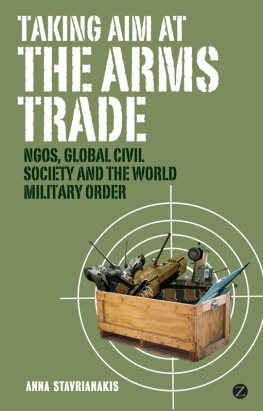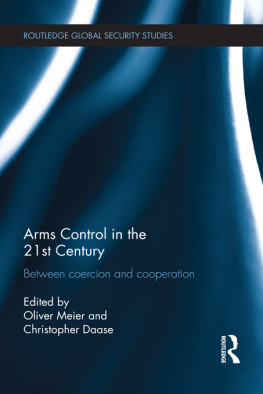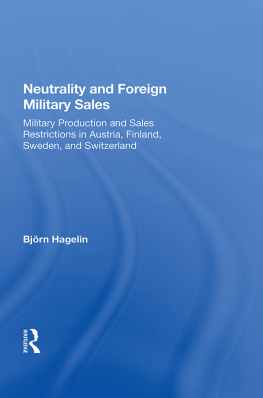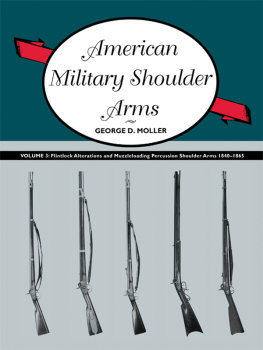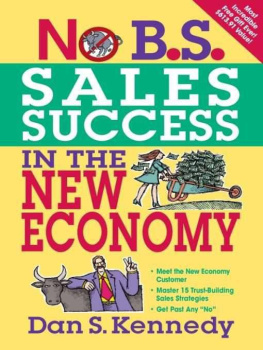Arms Sales and the U.S. Economy
Arms Sales and the U.S. Economy
The Impact of Restricting Military Exports
William D. Bajusz
David J. Louscher
First published 1988 by Westview Press, Inc.
Published 2018 by Routledge
52 Vanderbilt Avenue, New York, NY 10017
2 Park Square, Milton Park, Abingdon, Oxon OX14 4RN
Routledge is an imprint of the Taylor & Francis Group, an informa business
Copyright 1988 Taylor & Francis
All rights reserved. No part of this book may be reprinted or reproduced or utilised in any form or by any electronic, mechanical, or other means, now known or hereafter invented, including photocopying and recording, or in any information storage or retrieval system, without permission in writing from the publishers.
Notice:
Product or corporate names may be trademarks or registered trademarks, and are used only for identification and explanation without intent to infringe.
Library of Congress Cataloging-in-Publication Data
Bajusz, William D.
Arms sales and the U.S. economy.
(Westview special studies in national security and defense policy)
Includes index.
1. MunitionsUnited States. 2. MunitionsMiddle East. 3. United StatesEconomic conditions 1981- . I. Louscher, David J. II. Title. III. Series.
HD9743.U6B35 1988 382'.456234'0973 87-34603
ISBN 13: 978-0-367-01444-5 (hbk)
Over the past fifteen years we have been examining the foreign policy implications of security assistance, technology transfer and cooperative acquisition of military equipment among American security partners. Throughout this period significant debate has occurred concerning the uses and directions of American security assistance. But little if any attention has been devoted to the domestic economic impact of America's security assistance programs. Even less attention has been devoted to means of measuring that impact.
In this study the authors were determined to address the issues related to the void with respect to measuring the impact of U.S. arms sales. This study does not begin with the premise, or do the authors believe, that economic considerations should be the predominant determinants of decisions concerning the transfer of U.S. military equipment. Rather, this work is based on the belief that it is imprudent to ignore the economic considerations in such matters.
The impact of arms sales on the U.S. economy is assessed in this volume at a level of detail that heretofore has not been possible fundamentally because of the absence of specific information. The authors were fortunate to obtain the cooperation of numerous individuals within Government and Industry. These individuals provided information and data on the grounds that they not be explicitly identified and their wishes have been honored. However, the authors would like to express deep appreciation for their participation. Further, this study benefitted significantly from the sponsorship of General Dynamics, which was willing to fund part of the research and also to provide their services and specialists in operations research and overseas sales. Science Applications International Corporation also provided critical support.
The authors wish to express their appreciation to Kay Brewer, Jacqueline Smith and Carlo Costa for their very valuable contribution in managing all the data collected and used in this work. At The University of Akron, Political Science Department, Bonnie Ralston performed the critical tasks of preparing, formatting and assembling the manuscript. As so often in previous publications, her efforts were sterling.
We also wish to acknowledge the support provided by our respective institutions, Science Applications International Corporation and The University of Akron. These institutions have created research environments necessary to make this project possible.
William D. Bajusz
David J. Louscher
1
Introduction
The purpose of this study is to contribute to, and hopefully further, national discussions of the implications of future U.S. sales of military equipment overseas for the U.S. economy. Specifically, this study addresses the domestic economic impact of possible restrictions that might be placed on the sale of specific combat equipment to selected countries in the Middle East. In so doing, this book focuses upon prospective demand for advanced equipment through the year 2000 by Jordan and the member states of the Gulf Cooperation Council (GCC). The members of the GCC include: Saudi Arabia, the United Arab Emirates, Bahrain, Kuwait, Oman and Qatar.
Few would dispute that overseas sales of military equipment and support services have positive benefits for the U.S. economy. Conversely, few would question that a decision by either the Executive or Legislative branch of the U.S. Government to forego such sales entails some economic costs. What is not well understood, or is frequently at issue in particular arms transfer cases, is exactly how economically beneficial such sales are or how punitive foregoing particular sales may be for the U.S. Advocates of particular sales have been known to cite statistics suggesting that significant economic damage will attend a failure by the U.S. to transfer arms. Likewise, critics of sales, or proponents of arms transfer restraint more generally, have often appealed to evidence suggesting that the national economic costs of limiting arms transfers are marginal.
Specifically intended to address the implications of a hypothetical U.S. arms transfer restraint policy, this study concluded that across-the-board restraints in FMS agreements (assuming deliveries associated with existing commitments were honored) would, by 1981, cost the U.S. about $20 billion in GNP terms and around 350,000 jobs (or 0.3 percent higher unemployment than otherwise would have been the case). The extent to which the general conclusions of this study are valid more than ten years later under changed economic circumstances and whether the approach taken in the CBO study accurately portrays the full economic impacts of arms sales are matters for empirical inquiry.
Where this study can hope to make a contribution is perhaps not so much in its conclusions, but rather in presenting a structured, rigorous methodology for measuring economic impact associated with any future military sale. To be sure, this book offers some conclusions on the likely implications of a policy of limiting future sales of selected military equipment to Jordan and the GCC. At the same time, these conclusions are tentative because they are shaped profoundly by available data and the assumptions clearly set forth in subsequent pages. What may be more important than the conclusions per se is the approach taken to derive the conclusions. The methodology described in succeeding paragraphs hopefully will provide a basis for discussion by individuals representing a broad national political and professional cross section.
Such a broadly based discussion would appear to be particularly timely as national reservations increase about the overall U.S. world trade position. Domestic economic considerations traditionally have not figured prominently (if at all) in deliberations over specific arms transfers, which instead have been shaped principally by foreign policy considerations. The record of Congressional intervention in sales to Jordan and Saudi Arabia (about which more is said below) is illustrative in this regard. This study does not proceed from the premise, nor does it imply, that economic considerations should be the sole or even predominant determinants of whether to transfer military equipment. Rather, this study has been crafted in the belief that it is impudent to ignore totally economic considerations in such matters and all the more so in a climate in which there is intensifying concern over U.S. trade imbalances, their implications for the U.S. economy, and global competitiveness.


